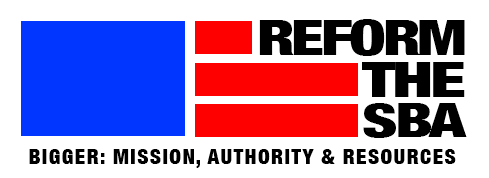Orlando Sentinel
March 26, 2021
Small Southern businesses need our help to rebuild after pandemic | Commentary
By INEZ LONG, JANIE BARRERA, DR. KARAMA NEAL AND GRACE FRICKS
GUEST COLUMNIST |
One in 10 Americans have been fully vaccinated against COVID-19 — a shining light at the end of a very dark year. We can finally glimpse a return to “normal” in our daily lives. For small businesses, though, the road to recovery is much longer.
Without thriving small businesses, what will “normal” look like? The country’s 30 million small businesses are part of our daily lives. When you think about the spots in your community where you’ve been longing to go during this pandemic, chances are you’re thinking of a small business. And they are critical economic drivers in our local, regional and national economies. They employ nearly half of all private-sector workers, create two-thirds of new jobs, and account for 44% of economic activity.
But small businesses will need significant support to return to being the economic engines they once were. This is especially true in the South, where systemic challenges — including long-standing wealth gaps, lack of access to affordable capital, and an insufficient safety net — have exacerbated the obstacles small business owners face.
We’ve been here before. After the Great Recession, we saw businesses and communities across the South struggle to bounce back. Prior to 2009, the region’s economic growth had caught up with other areas, but post-recession it has seen slower growth in output and wages, lower labor force participation, and higher unemployment. In part, this is due to a lack of coordinated, intentional investment in the region’s recovery. That’s a mistake we can’t afford to repeat.
Small businesses are not equipped to weather a prolonged period of economic distress. Yet, these businesses have been forced to temporarily close, adapt business models, or even shut down. This leaves them in a precarious position — for example, in Florida, census data shows 57% of small businesses have less than two months’ cash on hand and 31% expect to seek capital in the next six months. Those figures are typical of all Southern states.
The economic struggles of the last year have underlined long-standing gaps in economic mobility across the region. The South is the least upwardly mobile region in the country, according to Opportunity Insights at Harvard University. The region also has a higher proportion of unbanked or under-banked populations than the national average. Small businesses have more difficulty accessing ffordable financing, often relying instead on online products with exorbitant rates and fees.
More concerted financing and relief efforts will be needed if these businesses are to survive. Community development financial institutions (CDFIs) — dedicated to delivering affordable lending and technical assistance to help low-to-moderate-income individuals — are part of a new program that has brought community lenders, philanthropists, the private sector, advocates, impact investors and others together to help small businesses and nonprofits across the South adapt and rebuild from the pandemic.
The Southern Opportunity And Resilience (SOAR) Fund aims to raise $150 million to provide small businesses and nonprofits with access to low-interest loans and free business support.
Providing community lenders like CDFIs with additional capital is key if we are to get financing into the hands of small businesses that need it the most right now and reverse some of the systemic challenges the South has long faced.
Prior to the COVID-19 crisis, an Urban Institute study found that communities with poverty rates of 20% or higher received less than half the investment of communities with poverty rates lower than 20%, a total gap of $156 billion. In 2018, total investment by CDFIs was $11 billion, filling approximately 7% of the gap. That’s just not enough, and one entity — whether government, the private sector, philanthropists or something else — is not enough to help us create the kind of equitable recovery we so desperately need. A model like the SOAR Fund, which brings together multiple sectors of our economy, is one way to scale CDFI investments to address the gap.
COVID-19 has shined a light on numerous inequities across our communities and our economy. Small businesses and community nonprofits, especially those run by women, people of color, immigrants, and those in rural areas, have borne the brunt of the economic fallout.
They are essential threads in the fabric of our communities — and with some support in their time of need, they can rebuild and contribute to a strong and equitable economic recovery across the South, and the country.
Inez Long is CEO and president of the Black Business Investment Fund (BBIF), headquartered in Orlando. Janie Barrera is founding president and chief executive officer of Liftfund. Dr. Karama Neal serves as President for Southern Bancorp Community Partners. Grace Fricks is president and CEO of Access to Capital for Entrepreneurs. All are partners of the Southern Opportunity and Resilience (SOAR) Fund.
Small Southern businesses need our help to rebuild after pandemic | Commentary – Orlando Sentinel
